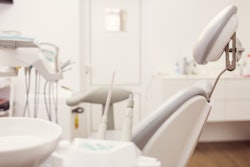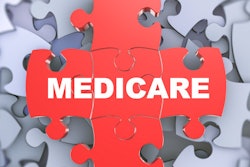
The ADA is encouraging dentists to contact U.S. lawmakers and voice their opposition to adding a dental benefit to Medicare Part B, according to an alert from the ADA's Legislative Action Center. The proposal to add oral healthcare to Medicare is part of the congressional budget bill currently being considered.
"If you don't make your voice heard now, Congress will make this decision for you, your practice, and your patients," the alert states.
A provision that includes dental benefits through Medicare coverage is part of a $3.5 trillion budget passed by the U.S. Senate and House of Representatives. The bill also includes funding for vision and hearing benefits, in addition to lowering the current Medicare eligibility age of 65.
The bill is now in reconciliation, a special fast-track parliamentary procedure set up to expedite the passage of certain budgetary legislation through Congress. While the details have yet to be hammered out, Democrats are eyeing including dental coverage in Medicare Part B, which provides benefits for preventive and medically necessary services, including mental healthcare, some prescription drugs, and ambulance services.
In a September 8 alert, the ADA asked dentists to oppose dental benefits being added to Medicare Part B. The organization argues that the current proposal is physician-centric and does not distinguish between dentists and physicians.
"Specifically, Part B would require significant administrative, technical and programmatic requirements that would not best serve older patients seeking access to oral health care," the alert states. "Additionally, the Part B fee schedule would not adequately reimburse dentists."
The ADA is instead proposing that the government provide comprehensive dental benefits only for low-income seniors as part of a separate Medicare program. On August 24, the ADA ran a news story outlining its vision for such a program that specifically caters to seniors whose income is up to 300% of the federal poverty level.
The ADA is not the only prominent dental organization calling on Congress to keep dental benefits out of Medicare Part B. In a September 1 letter addressed to congressional leadership, 11 dental organizations said an "expansion of benefits within the current Part B structure of Medicare would not adequately meet the needs of our dentists and Medicare patients."
The signatories included the ADA, the Academy of General Dentistry, and premier specialty groups, including the American Academy of Periodontology, the American Association of Endodontists, the American Association of Oral and Maxillofacial Surgeons, and the American Dental Education Association.
While organized dentistry appears nearly uniformly opposed to dental in Medicare Part B, the American Dental Hygienists' Association (ADHA) Action Center website is calling on hygienists to reach out to their representatives to "strengthen Medicare and support oral health coverage in Medicare." The ADHA cited data on the historically low use of oral healthcare among seniors, noting that only two of five seniors visit an oral health professional during a typical year, for example.
"Oral health is a critical component of overall health and millions of Americans are left without care because oral health coverage is excluded from Medicare," the ADHA Action Center website states. "More than 60 million people rely on the Medicare program -- and only about one-third of them have any coverage for oral healthcare."
It's too soon to say whether dental benefits will make the final cut of the budget. Democrats need a unified vote to pass the budget, but Sen. Joe Manchin III (D-WV) recently published an op-ed announcing his opposition to the high price tag.
The package may be retooled and voted on again by the end of September. In its current form, vision benefits would start in 2022, hearing benefits in 2023, and dental benefits in 2028.



















